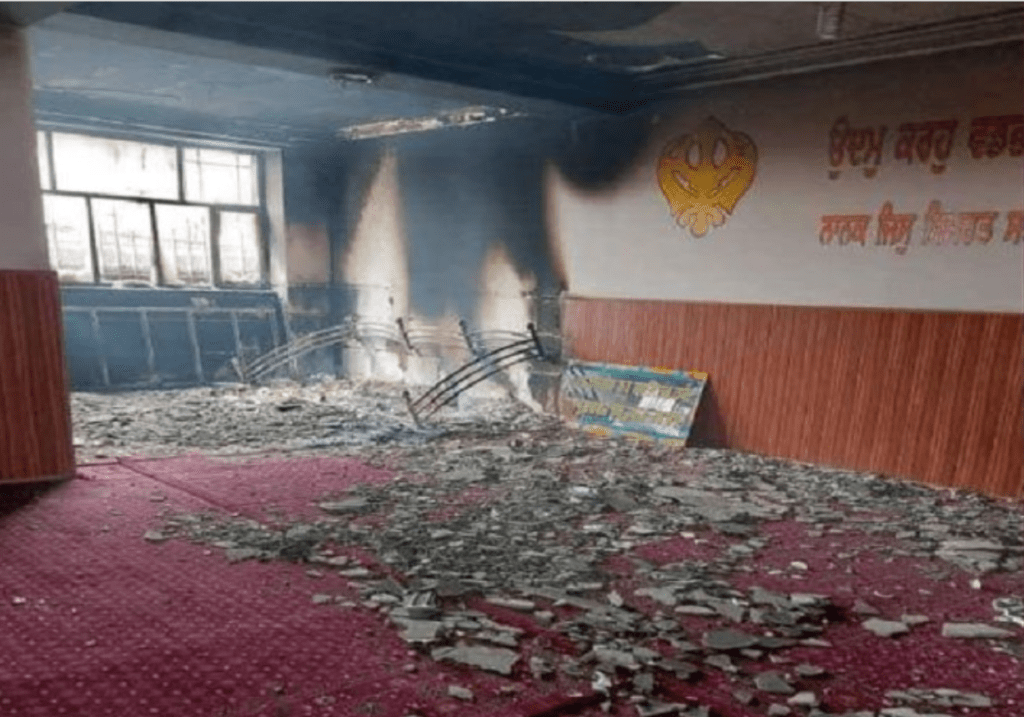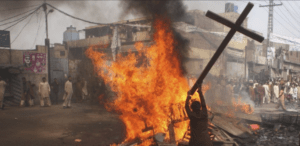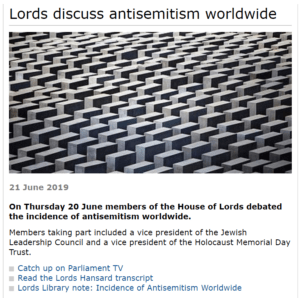
Yesterday Sikhs in Britain and worldwide woke up to the heart wrenching news of the cold-blooded murder of 25 worshippers (including one child) in a gurdwara in the Afghan capital Kabul.
Islamic State gunmen have been held responsible for the massacre of innocent worshippers, and disturbing images of the dead, along with videos of panic-stricken children sitting in a room in the gurdwara, have been widely disseminated online. The Afghan security forces were engaged in a gun battle with jihadists and helped some members of the congregation escape.
The terrorist attack against the Sikh minority is nothing new. In the summer of 2018, a suicide bomber struck a crowd of Afghan Sikhs and Hindus arriving to meet with President Ashraf Ghani as he visited the eastern city of Jalalabad, an attack that killed at least 19 people and wounded 10 others. Almost the entire Afghan Sikh and Hindu leadership were killed, including the only Sikh candidate running for election.
At the time Lord Singh our Director, tabled a written question to the government: ‘To ask Her Majesty’s Government, following the suicide bombing resulting in the death of 19 Sikhs in Jalalabad, Afghanistan in July, what representations they intend to make to the government of India to encourage it to offer asylum or safe passage to Sikhs wishing to leave Afghanistan.’
The minister’s response: ‘The British Government condemned the 1 July attack on a group of Sikhs and Hindus in Jalalabad. The Minister for Asia and the Pacific publicly described it as “a despicable attack on Afghanistan’s historic Sikh and Hindu community”. As part of NATO’s Resolute Support Mission, the UK supports the Afghan National Defence and Security Forces in its efforts to improve security for all communities in Afghanistan. NATO’s Resolute Support Mission is also assisting the Afghan National Defence and Security Forces with security planning for the upcoming elections. The UK regularly raises human rights issues with the Government of Afghanistan, including the need to protect the rights of all ethnic and religious groups in line with the constitution.’
At the time Lord Singh also asked the government whether they would provide asylum to Afghan Sikhs, to which they responded – ‘Those who need international protection should claim in the first safe country they reach – that is the fastest route to safety.’
In 2018 the Home Office put together a briefing paper highlighting the persecution of Sikhs and Hindus in Afghanistan. It cited an article that revealed, ‘prior to 1992 there were about 220,000 Hindus and Sikhs in Afghanistan with another putting that number as low as 50,000. By now, the very few remaining are concentrated in the provinces of Nangarhar, Kabul, and Ghazni’. Sikhs, Hindus and other minorities are being systematically ethnically cleansed from Afghanistan, a country Sikhs have resided in since the fifteenth century.
In response to the Kabul gurdwara massacre, we will continue to raise the targeting of Sikhs and other Afghan minorities with the government. We will also be raising the issue with members of the APPG for International Freedom of Religion or Belief as a matter of urgency.
We request Sikhs write to their MPs requesting asylum rights in the UK for Sikhs escaping genocide, and for strong UK condemnation of the attack on innocent Sikh worshipers.
For
further information contact Deputy-Director Hardeep Singh at: info@nsouk.co.uk


 Last week our Director Lord Singh tabled a question to the government about Foreign and Commonwealth Office (FCO) support for persecuted Christians. He asked Her Majesty’s Government, ‘what assessment they have made of the recommendations of the Bishop of Truro’s Independent Review of the Foreign and Commonwealth Office’s support for persecuted Christians.’
Last week our Director Lord Singh tabled a question to the government about Foreign and Commonwealth Office (FCO) support for persecuted Christians. He asked Her Majesty’s Government, ‘what assessment they have made of the recommendations of the Bishop of Truro’s Independent Review of the Foreign and Commonwealth Office’s support for persecuted Christians.’ Our Director Lord Singh of Wimbledon contributed to a debate on anti-Semitism secured by Baroness Berridge in the House of Lords this week.
Our Director Lord Singh of Wimbledon contributed to a debate on anti-Semitism secured by Baroness Berridge in the House of Lords this week. A Report commissioned by the Foreign Secretary Jeremy Hunt has found that the persecution of Christians in many parts of the world amounts to what some see as near genocide. Millions of Christians have been uprooted from their homes, and many have been killed, kidnapped, imprisoned and discriminated against.
A Report commissioned by the Foreign Secretary Jeremy Hunt has found that the persecution of Christians in many parts of the world amounts to what some see as near genocide. Millions of Christians have been uprooted from their homes, and many have been killed, kidnapped, imprisoned and discriminated against.